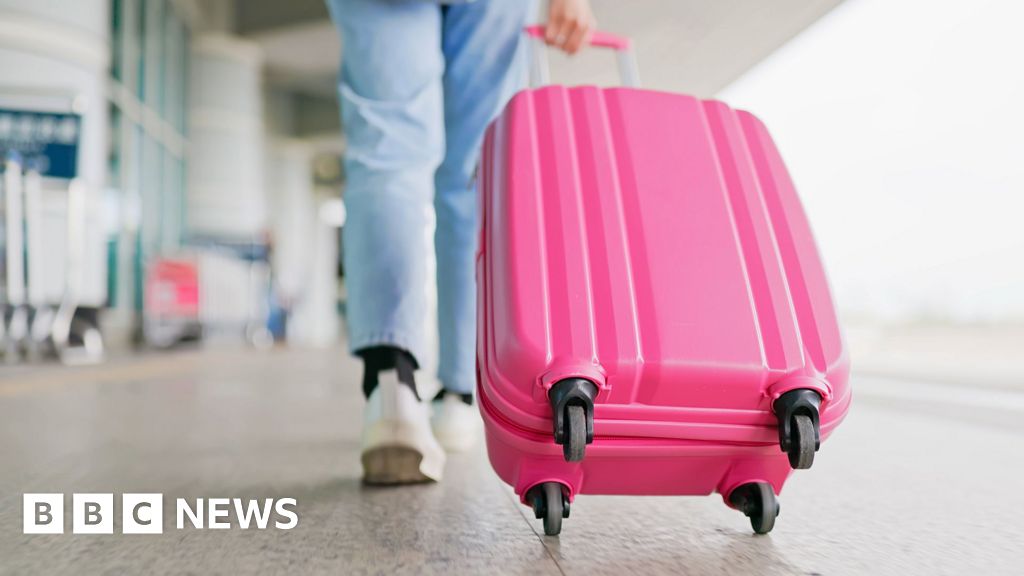ARTICLE AD BOX
 Image source, Getty Images
Image source, Getty Images
Akshata Murty with her husband, Prime Minister Rishi Sunak
The number of people who claimed non-dom status in the UK has risen slightly since the Covid pandemic, the latest figures show.
Some 74,000 people claimed non-dom status in 2022-23, up from 68,900 in 2021-22, HM Revenue & Customs data showed.
The new Labour government has pledged to scrap the non-dom tax status in the UK to raise more money for the NHS and other public services.
It previously said it would strengthen plans announced by the former Conservative chancellor Jeremy Hunt to reform the tax perks.
What is a non-dom?
"Non-dom" describes a UK resident whose permanent home - or domicile - for tax purposes is outside the UK.
It refers to a person's tax status, and has nothing to do with their nationality, citizenship or resident status - although it can be affected by these factors.
A non-dom only pays UK tax on the money they earn in the UK. They do not have to pay tax to the UK government on money made elsewhere in the world (unless they pay that money into a UK bank account).
For wealthy individuals, this presents the opportunity for significant - and entirely legal - savings, if they choose a lower-tax country as their domicile.
One of the most well-known non-doms is former prime minister Rishi Sunak's wife, Akshata Murty.
After details of her status emerged, she said she would start paying UK tax on her earnings generated outside the UK.
How are the non-dom rules changing?
Labour revealed plans to scrap the non-dom regime in April 2022.
Former Conservative chancellor Jeremy Hunt then announced in the March 2024 Budget that the non-dom tax regime would be phased out.
According to Mr Hunt's plans, people who move to the UK from April 2025 will not have to pay tax on money they earn overseas for the first four years.
After that period, if they continue to live in the UK, they will pay the same tax as everyone else.
Those people who currently have nom-dom status will be allowed a two-year transition period, during which they will be encouraged to bring their foreign wealth into the UK system.
The former chancellor said getting rid of the non-dom status would raise £2.7bn a year by 2028/29.
The Labour government has vowed to strengthen these planned reforms.
It said it would remove a 50% discount in the first year of the new rules and include foreign assets held in a trust within the UK inheritance tax framework.
New Chancellor Rachel Reeves said Labour's changes could raise £2.6bn over the course of the next Parliament.
How do you become a non-dom?
You can become a non-dom in two main ways:
Domicile of origin - if you were born in a different country from the UK, or if your father came from a different country
Domicile of choice - if you are over 16 and choose to leave the UK and live indefinitely in another country
Image source, Getty Images
Image caption,Many of the UK's non-doms live in central London areas such as Westminster and Kensington
What are the current rules for non-dom status?
If you are a non-dom, external and you choose not to pay tax in the UK on your overseas earnings, you must pay:
£30,000 if you've been here for at least seven of the previous nine tax years
£60,000 for at least 12 of the previous 14 tax years
In 2017, the non-dom rules were changed to mean you can no longer claim this status if you have been a UK resident for 15 out of the previous 20 years, or if all the following conditions apply:
you were born in the UK
your domicile of origin was in the UK
you were resident in the UK for at least a year since 2017
However, if you earn less than £2,000 a year from foreign earnings, and you do not bring that money into the UK, you do not have to do anything.
How many non-doms are there?
According to the latest figures from HM Revenue & Customs (HMRC), external, 74,000 people claimed non-dom status in 2022-23.
That was an increase from 68,900 in 2021-22, which HMRC said was a recovery in numbers of non-domiciled taxpayers since the Covid-19 pandemic.
A study of people who were non-doms in 2018, external, or who had claimed non-dom status since 1997, found that:
more than 93% were born abroad, and another 4% had lived abroad for a substantial period
three in 10 people who earned £5m or more claimed non-dom status, compared with fewer than three in 1,000 among those earning less than £100,000
most non-doms came from Western Europe, India and the US, although there had been a rapid rise since 2001 of non-doms from China and former Soviet states
most lived in and around London - and more than one in 10 adults in Kensington, the City of London and Westminster were, or had been non-dom

 10 months ago
44
10 months ago
44








 English (US) ·
English (US) ·